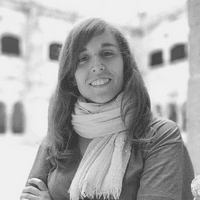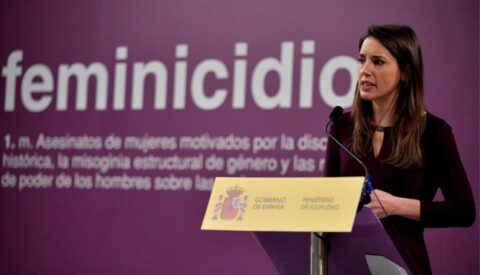«Fox Guarding Henhouse» — Fury Over UAE Oil Sultan Heading COP Climate Talks
Even with months to go before the next COP, debate rages over who will chair it. Is it a miscalculation or a masterstroke to bring the head of an oil company to the table?
Article

Article
The controversy has already begun ahead of the next COP climate conference in November. The 28th United Nations Conference on Climate Change will be hosted by the United Arab Emirates, one of the world’s largest producers and exporters of oil.
Not only will the UAE host, but presiding over the conference will be Sultan Al Jaber, the UAE’s Minister of Industry and CEO of the National Oil Company (ADNOC).
«It’s like a fox guarding the henhouse», said Pedro Zorrilla, a spokesperson for Greenpeace Climate Change. Alongside 450 other international organizations, the NGO has signed a letter addressed to UN president António Guterres, calling for Al Jaber’s dismissal.
«It’s like a fox guarding the henhouse», said Pedro Zorrilla, a spokesperson for Greenpeace Climate Change
For the letter’s signatories, the Sultan represents «a threat to the legitimacy and effectiveness» of the conference, they write. «If we have any hope of addressing the climate crisis, the COP must not be influenced by the fossil fuel industry, whether that be oil, gas or coal».
The figure of the presidency may only be symbolic, but Zorrilla points out that the president has decision-making power in this type of international meeting, where nations are expected to agree on concrete decisions to curb the climate emergency. «They are the ones who set the agenda».
Last year (at COP27 in Egypt), for example, important meetings between political representatives were delayed and left very late. «So there was very little time left to make decisions», argues Greenpeace.
Corporate president
Al Jaber is not expected to give up his position; on the contrary, he has political backing from other countries. In an interview with Spanish international news agency EFE, the European Commission’s executive vice-president for the Green Deal, Frans Timmermans, said «(Al Jaber) is one of the few in the oil and gas industry that has been investing in decarbonization and renewable energies for a long time».
Al Jaber is also chairman of Masdar, a clean energy company with investments around the world. In the interview, Al Jaber asked critics to give him a chance to prove he is «committed to change».
He has also been backed by the U.S. delegate to COP28, former U.S. Secretary of State John Kerry. In an interview with the Associated Press, Kerry said he has «great confidence» that the important issues will be on the table and that the UAE will lead countries to acknowledge «their responsibility.»
As director of EFE’s green section, Arturo Larena has covered conferences like COP before. He believes the involvement of the oil sector in COP decisions could be positive. «You can’t make a change without having different parties involved. And the UAE is one of the countries that is really committed to trying that transition from the fossil fuel industry to other energies. They have the knowledge and the will to change things», he says.
The environmental reporter also notes that this is not the first controversial venue when it comes to energy. Poland, «which has an important industry linked to fossil fuels», has hosted three times, most recently in 2018. In 2012, COP18 was also held in Doha, the capital of Qatar, another oil-producing country. «The problem here lies in the fact that the presidency tends to be in political hands, such as the Minister of the Environment, rather than given to the president of a company», Larena said.
Should oil companies be banned?
Al Jaber himself has asked people to stop fighting «against one another» and has promised an «inclusive» COP which «must not leave anyone behind.» But Greenpeace and other environmental organizations want a protocol to be established so that the most polluting companies do not participate in the COP negotiations.
«It has been done in other sectors, like tobacco regulation. The tobacco industry did not participate in those negotiations, but doctors and political representatives did», says Zorrilla. Some have been even more explicit: Alice Harrison, of the NGO Global Witness, said that «You wouldn’t invite arms dealers to lead peace talks. So why let oil executives lead climate talks?»
The organizations behind the letter also call on the UN to ensure that companies responsible for pollution do not fund climate action: «Greenwashing and buy-outs of their responsibility for a crisis they have caused must not be allowed».
Greenpeace and other environmental organizations want a protocol to be established so that the most polluting companies do not participate in the COP negotiations
«If he manages to break away from ADNOC (the national oil company) and move closer to Masdar (the renewable energycompany), if there is more of a focus on taking the lead for other countries, then it could be interesting», says Lara Lázaro, senior researcher at the Elcano Royal Institute on Climate Issues. Lázaro goes on to say that «a business mentality» can be positive when moving from «commitments to action», but that such a mindset can also prove negative when it comes to «losses, damages and financing» — that is, when money is used to mitigate the effects of climate change in the most affected countries.
Oil as part of the climate change solution?
NGOs have picked up on statements made by the COP President late last year at the opening of the Abu Dhabi International Petroleum Exhibition and Conference to highlight his conflict of interest: «The world needs all possible solutions. Oil and gas, solar, wind and nuclear, and hydrogen, as well as clean energies yet to be discovered, commercialized and implemented».
Although after he was appointed president of the COP, he started to sound more green: «The UAE intends to hear, engage and build partnerships with all parties willing to play a constructive role in the transition to clean energy».
As Lara Lázaro points out in her article for the Elcano Royal Institute, the goal of this conference will be to ensure nations agree to end the era of all fossil fuels, not just coal. At the previous COP27 in Egypt, India and 80 other countries’ proposal «to broaden the call for the reduction of all fossil fuels», including oil and gas, was not taken into account following opposition from countries like Saudi Arabia. Thus, the UAE and Al Jaber will play a key role despite potentially being «less inclined», according to the researcher.
It will not only fall under Al Jaber’s responsibility, though. EFE journalist Larena has pointed out that there is a «very important political and economic» component to the COPs, and the number of lobbyists in attendance is becoming increasingly apparent — something that NGOs criticize.
An investigation by Global Witness and Corporate Europe Observatory revealed that, at COP27, there were 636 delegates related to the fossil fuel industry — 25% more than at COP26. The report revealed the oil and gas sector’s desire to influence the negotiations, especially those from the UAE. The report also warned that the total number of fossil fuel representatives at the summit outnumbered any one of the delegations from the 10 most affected countries by the climate crisis.
At this COP, «we will be more vigilant than ever», says Pedro Zorrilla from Greenpeace. «We will continue to denounce the presence of fossil fuel interests in these meetings. In the end, this situation will be a springboard to keep denouncing it and to ask for a protocol to exclude the fossil industry from the climate negotiations».
This content is part of a collaboration agreement of ‘WorldCrunch’, with the magazine ‘Ethic’. Read the original at this link.






